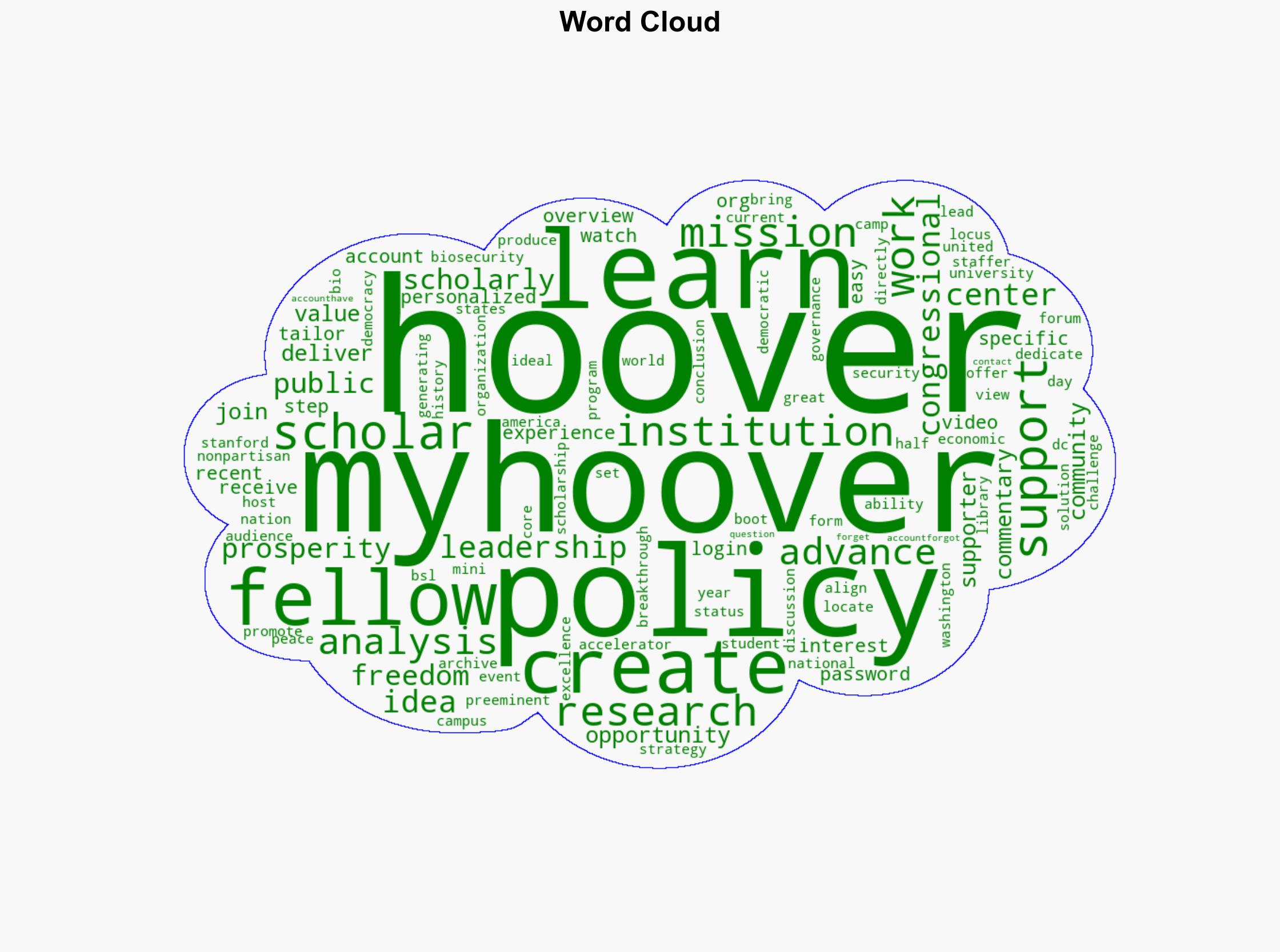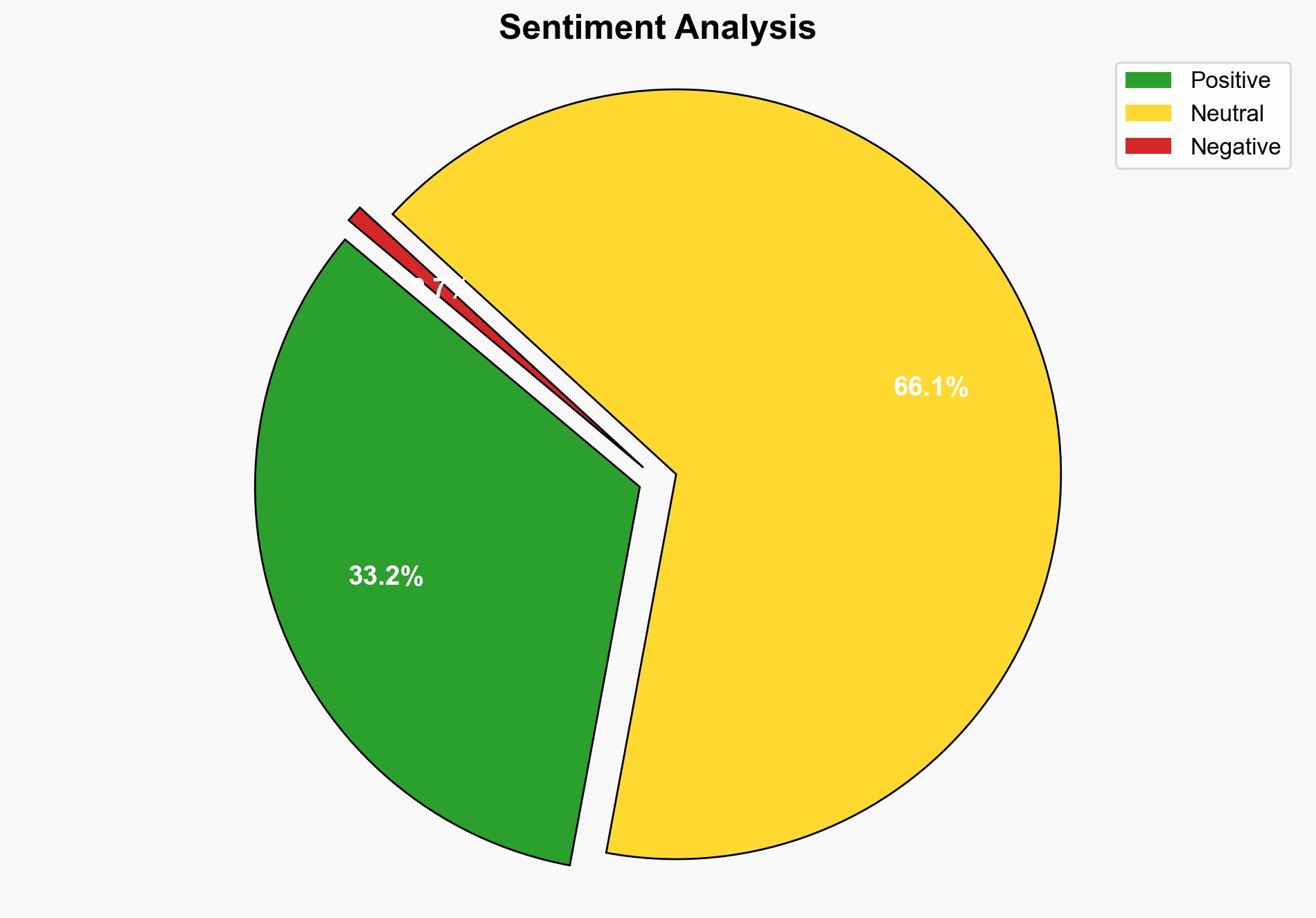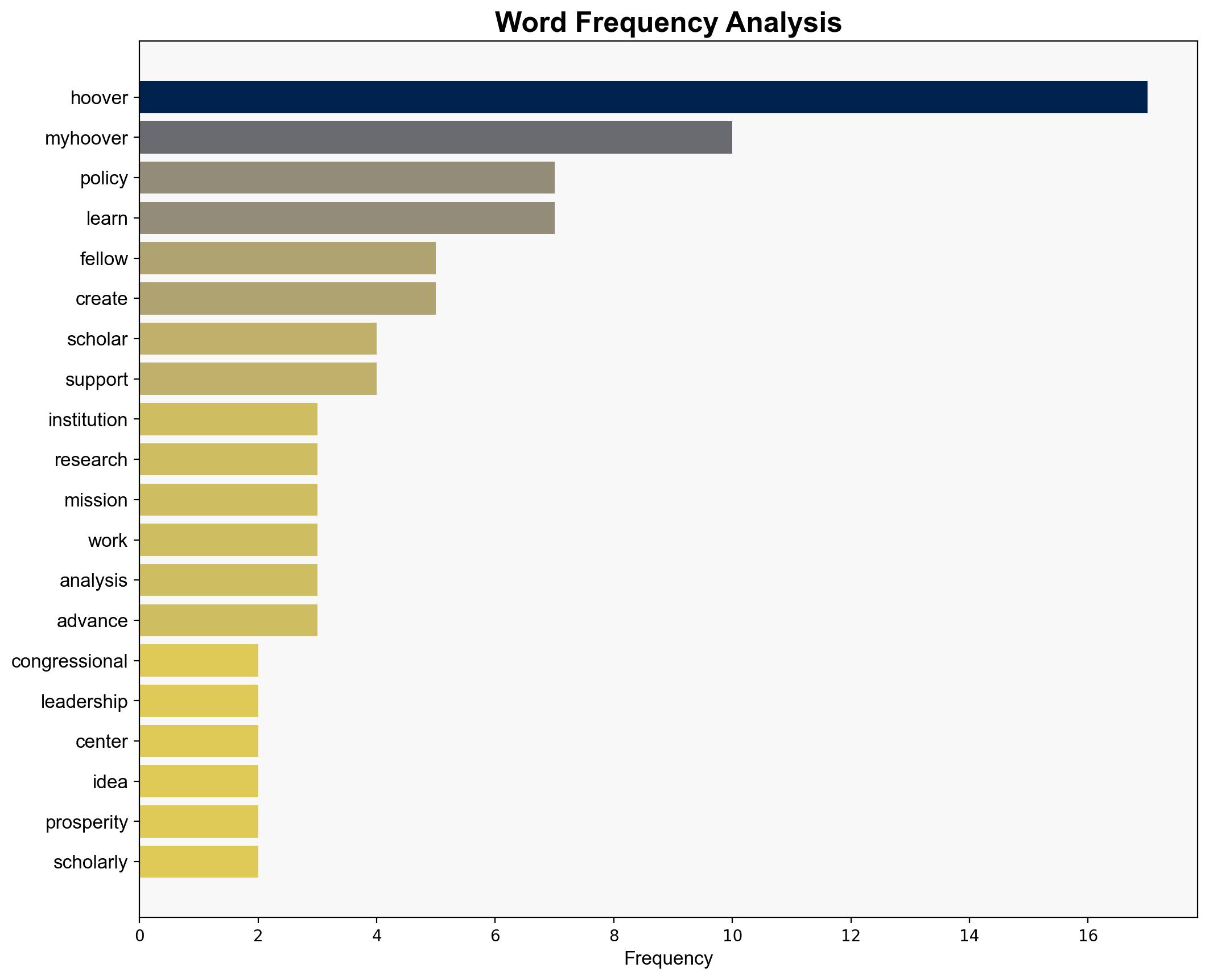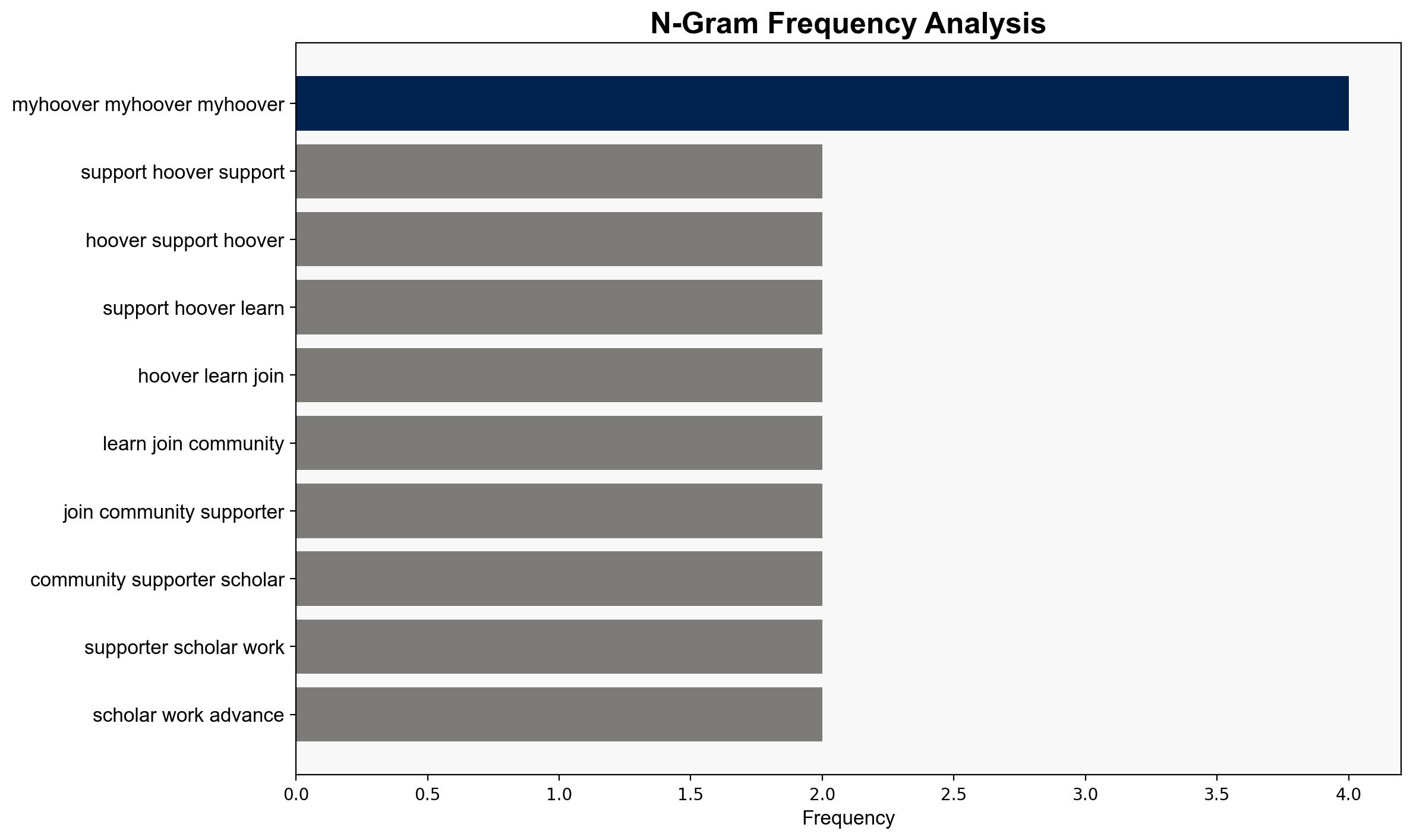Congressional Leadership Accelerator for Biosecurity – Hoover.org
Published on: 2025-10-21
Intelligence Report: Congressional Leadership Accelerator for Biosecurity – Hoover.org
1. BLUF (Bottom Line Up Front)
The Congressional Leadership Accelerator for Biosecurity, hosted by the Hoover Institution, aims to enhance biosecurity policy understanding among congressional staffers. The most supported hypothesis is that this initiative seeks to influence policy development in biosecurity by leveraging academic expertise. Confidence in this assessment is moderate, given the limited information on specific program outcomes. Recommended action includes monitoring program developments and evaluating their impact on legislative initiatives.
2. Competing Hypotheses
Hypothesis 1: The program is primarily designed to educate congressional staffers on biosecurity to directly influence legislative policy development.
Hypothesis 2: The program serves as a networking platform for Hoover Institution scholars to establish influence and partnerships with policymakers, with education as a secondary goal.
Using ACH 2.0, Hypothesis 1 is better supported due to the explicit mention of policy idea generation and the educational format of the program. Hypothesis 2 is less supported but plausible, given the strategic positioning of the Hoover Institution as a policy influencer.
3. Key Assumptions and Red Flags
Assumptions:
– The program’s educational component is genuinely intended to inform policy rather than serve as a facade for influence.
– Participants are open to integrating academic insights into policy decisions.
Red Flags:
– Lack of detailed information on program curriculum and participant feedback.
– Potential bias in reporting outcomes, given Hoover’s vested interest in promoting its influence.
Blind Spots:
– The effectiveness of the program in changing policy perspectives is not measured.
– Potential resistance from policymakers to adopt academic recommendations.
4. Implications and Strategic Risks
The program could significantly impact biosecurity policy if successful in educating and influencing congressional staffers. However, there is a risk of over-reliance on academic perspectives that may not align with practical policy needs. Geopolitically, enhanced biosecurity measures could alter international relations, particularly with nations lagging in biosecurity capabilities. Economically, increased focus on biosecurity could lead to resource reallocation from other critical areas.
5. Recommendations and Outlook
- Monitor the program’s developments and assess its impact on biosecurity policy initiatives.
- Engage with participants to gather insights on the program’s effectiveness and areas for improvement.
- Scenario Projections:
- Best: The program leads to significant biosecurity policy advancements and stronger legislative frameworks.
- Worst: The program fails to influence policy, resulting in wasted resources and missed opportunities.
- Most Likely: Incremental improvements in biosecurity policy with increased awareness among policymakers.
6. Key Individuals and Entities
– Hoover Institution scholars and fellows
– Congressional staffers participating in the program
7. Thematic Tags
national security threats, cybersecurity, counter-terrorism, regional focus




